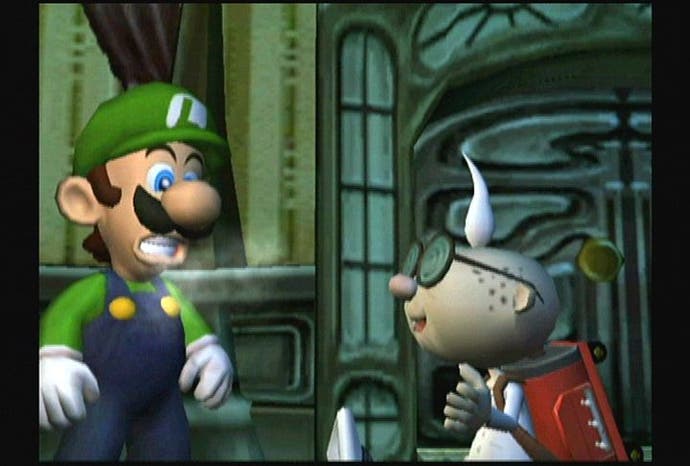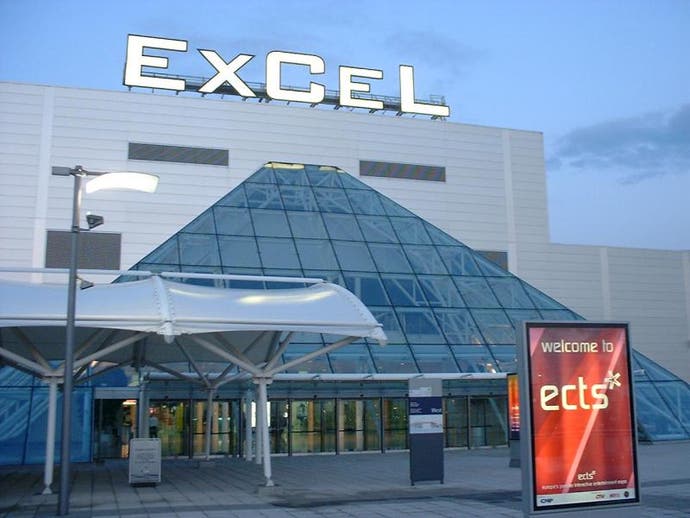The Third Place
Article - why does Europe always come last in the gaming industry?
Nintendo's GameCube has just launched in Japan with all the ferocity of one hand clapping in an empty forest. Two months from now it will be appearing on store shelves in America, and by then Microsoft should have launched its Xbox as well. But not here. In Europe we will probably have to wait until March to get our hands on these new consoles, although so far neither company has even bothered to tell us exactly when their console will be released or how much it will cost us when it finally does arrive.

Last But Not Least
And it's not like this is the first time it has happened - almost every new console arrives in Europe last, and many games are released in Europe weeks or even months after their US launch. This comes despite the fact that Europe is now the world's second biggest market for computer games, surpassing Japan and still growing fast.
This is partly down to the fact that Europe is not (yet) a single territory with one language, even though most European gamers speak at least some English. In the case of plot-heavy role-playing or adventure games we can certainly appreciate that it takes some time to translate thousands of lines of dialogue into French, German, Spanish and Italian if the company decides to localize the product. Sadly the outcome often pales in comparison to the original English or Japanese acting, and the translation is sometimes hit and miss as well. Many Europeans don't even want the games localized; they would rather have an English version now than a Hungarian translation in two or three months. A quarter of all European games sales come from the UK anyway, with another third provided by the Germans and Scandinavians, most of whom speak impeccable English as their second language. Why hold up the release for the whole of Europe while you translate the game into half a dozen languages most of your customers won't ever hear?
Consoles and their games also require some extra work to handle our television sets, which use the PAL system rather than America's NTSC. This means a different number of lines on the screen and a different refresh rate, and poorly done ports of overseas titles can end up with black borders and visual glitches. Obviously some companies aren't putting in the effort, but even a good PAL conversion shouldn't prove too time-consuming or expensive. After all, it's a matter of routine. Having said that, most good TV sets now on sale in Europe fully support both formats anyway, so this is rapidly becoming less of an issue.

No Shows
Although this would explain short delays in European releases, it is evident that some foreign companies simply treat Europeans as second class citizens and give us the left-overs of whatever stock remains after the American release. Just look at Sony's farcical European PlayStation 2 launch for a recent example of this.
ECTS also showed up this attitude, with many big name publishers choosing to stay away. A few of these were European owned companies (Eidos, Codemasters and Titus spring to mind), but most were American and Japanese. Nintendo held their own show the day before ECTS, as did Electronic Arts, who also hosted Capcom in a small suite off the main hall. But many other overseas publishers simply didn't bother to come to Europe at all, expecting us to trudge out to the Tokyo Show and E3 instead - Activision, Take 2, 3DO, THQ, Konami and Acclaim were all amongst the no-shows.
Perhaps the biggest name missing was Microsoft, which still hasn't told us anything at all about the Xbox's European launch and has now missed its last chance to show the console at a major trade event before its American debut in November. As a result we only saw a handful of Xbox titles at ECTS, two of them developed by English company Rage and due for release at the European launch of the console next year. Indeed, ECTS was very much a European affair this year, with English, French and German companies dominating.
Conclusion
American and Japanese publishers and console manufacturers ignore us at their own peril - Europe now accounts for almost a third of the world's video game sales, a figure which is still growing rapidly. And according to ELSPA, about a third of last year's top 100 titles in Europe were developed in England alone, more than either America or Japan could muster.
And it's not just in Europe. We produce and publish many of the world's best selling games - Black & White, Max Payne and Operation Flashpoint all originated in Europe, while the likes of Half-Life, Unreal and Rainbow Six are now published by Europeans. The longer American and Japanese companies treat Europe as a side-show to their home market, the more of your publishers are going to end up being owned by the French. And I'm sure none of us want to see that happen!
-







